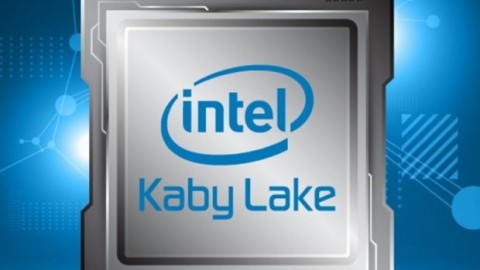
There has been a great hue and cry in the recent with Google introducing its unbeatable Artificial Intelligence Software Package called AlphaGo Zero, originally owned by Deep Mind. The fun fact about this AI Software is that it indulges itself in a self-learning process and boisterously knocks out the reigning champions of the world!
Since there are numerous jargons and convoluted explanations involved, lets un-complex it by presenting AlphaGo Zero and its triumph in the field of AI in a FAQ fashion.
Q1: What is Artificial Intelligence?
Answer: AI or Artificial Intelligence is an outcome of integrating high end hardware, software and programming to produce human-like or super-human-like entities for problem solving. An AI senses its environment and reacts accordingly. AI has been in the scene since Alan Turing’s theory of computation, which suggested that a machine, by shuffling symbols as simple as “0” and “1”, could simulate any conceivable act of mathematical deduction. We have come a long way since then and have implemented AI and its components in our lives. Direct examples of AI can be found in Self-Driving Cars, Video Games and Shopping Online. A hell lot of research work on Fuzzy Logic, Statistics, Neural Networks, Physics and what not is making AI stronger each passing year. From the beginning of computer development Chess has been considered the touchstone of Artificial Intelligence and Machine Learning.
Q2: What is AlphaGo Zero?
Answer: AlphaGo Zero is DeepMind’s AI, a subsidiary company owned by Google a few years back. This company is engaged in making a state-of-the-art AI Software that holds the power to beat the best Chess Engine and the best Go player in the world. What has surprised experts is Demis Hassabis, the co-founder and CEO of DeepMind, saying that AlphaGo Zero is so powerful because it is “no longer constrained by the limits of human knowledge”. David Silver, one of the first authors of DeepMind’s papers published in Nature on AlphaGo, said that it is possible to have generalised AI algorithms by removing the need to learn from humans. According to Demis Hassabis, AlphaGo’s algorithms are likely to be of the most benefit to domains that requires an intelligent search through an enormous space of possibilities, such as protein folding or accurately simulating chemical reactions. Since Hassabis had been a good chess player as a junior it did not come as a surprise when DeepMind turned to chess after its success with the age old game of Go.
Q3: What made AlphaGo Zero hit the newsstands?
Answer: On December 4th, 2017, Google Headquarters in London applied their DeepMind AI project to the game of chess. The event was more of an experiment than a chess exhibition, and the results are groundbreaking in both the fields of computing and chess. Last month, AlphaZero, beat the 3-day version of AlphaGo Zero by winning 60 games to 40, and with 8 hours of training it outperformed AlphaGo Lee on an Elo scale, as well as a top chess program (Stockfish) and a top Shogi program (Elmo). Making Stockfish 8 64 bit Chess Engine bite the dust was a spectacular achievement. In the sphere of scientific achievements, this news can be compared to the discovery of a new species of Probiotics.
Rather than relying on the classic “alpha-beta algorithm” common to conventional chess software, AlphaZero uses a deep neural network and is trained solely by reinforcement learning from games of self-play. It scans only 80,000 positions per second compared to Stockfish’s 70+ million. AlphaZero played Stockfish 100 games, winning 28 and drawing the rest. A subset of the match, 10 games that AlphaZero won, was released to the public. In AlphaZero’s chess tournament against Stockfish 8, each program was given one minute’s worth of thinking time per move. The detailed moves of the games between Stockfish 8 64 bit and AlphaGo Zero are available at http://www.chessgames.com/perl/chess.pl?tid=91944
It is widely discussed that Berlin Defence under Ruy Lopez (Spanish game) is the preferred Opening for AZ playing Black. Concepts like Ant Colony Optimization and Estimation of Distribution Algorithms are on the verge of being implemented into modern Chess Engine Champions like Stockfish and Komodo.
Q4: How much does Stockfish 8 and AlphaGo Zero cost?
Answer: Well, to be honest enough, I am an evangelist professing Free and Open Source Software, thus supporting Stockfish 8 and its derivatives. Myself being an avid Chess enthusiast, seldom play and analyse games of Chess using Stockfish 8. Ironically, Stockfish 8 is a World Champion in Computer Chess Tournaments, beating proprietary Engines like Houdini, Komodo, Deep Rybka and Deep Shredder. Now coming to Google’s AlphaGo Zero, it costs around $25 million. This is a rough estimate that includes hardware for a single AlphaGo Zero system, including its custom components.
Q5: Any other expectation from AlpahGo Zero or DeepMind?
Answer: Modern and future Chess players will definitely try to take advantage of AZ to help in improvement of their games. But will it be available for use in other domains is the big question. AlphaGo Zero’s techniques are probably less useful in domains that are difficult to simulate, such as learning how to drive a car. DeepMind stated in October 2017 that it had already started active work on attempting to use AlphaGo Zero technology for protein folding, and stated it would soon publish new findings. We are awaiting bombastic news from AZ, again.
Q6: How does AlphaGo Zero work?
Answer: The architecture of the AlphaGo program is based on an interaction of two neural networks, a “policy network” to define candidate moves, and a “value network” to evaluate positions. A Monte Carlo approach connects the two networks to a search tree. With the help of a database with 30 million moves the program learnt to predict the moves of humans. AlphaGo Zero’s algorithm just played against itself for 4 hours and was able to demolish Stockfish 8 64 bit with a margin of 64:36 without losing even a single game. Astounding! Mind blowing! Ridiculous!
Tags: AlphaGo AlphaGo Zero Google's AlphaGo Zero Science Science & Technology Stockfish 8 technology







